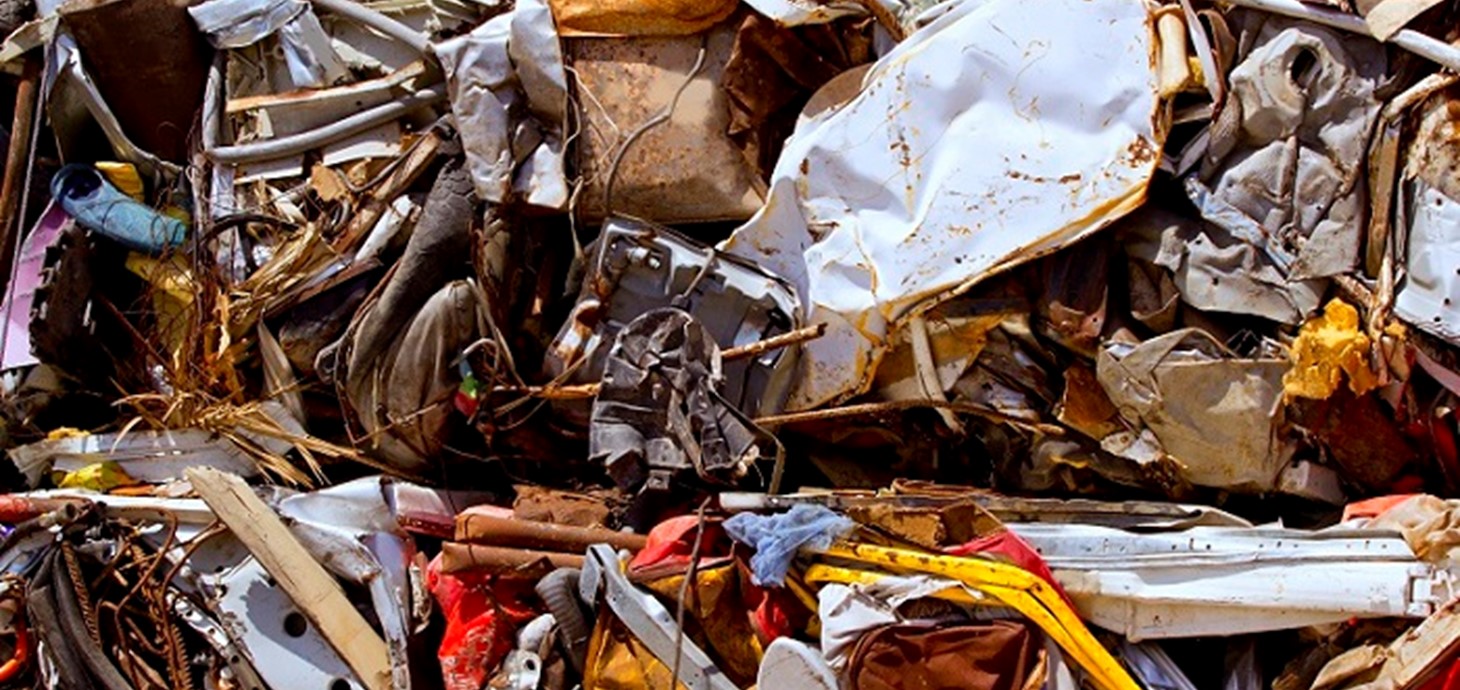
Scrap metal: better quality scrap metal is crucial in cutting the carbon emissions produced in mining and manufacturing metals from scratch. The new UN-backed research centre will draw on Swansea expertise in this area.
Swansea expertise in improving recycling by boosting the quality of scrap metal will be at the heart of a new centre, backed by the UN, which will research how we can reuse precious resources - from metals to minerals - more widely.
Better quality scrap metal is crucial in cutting the carbon emissions that are produced in mining and manufacturing metals from scratch.
For example, in the steel industry new products can be made by melting down scrap metal, using the electric arc furnaces that are planned in steelworks at Port Talbot and Scunthorpe. This generates lower carbon emissions than making steel from iron ore in blast furnaces but require more careful management of the scrap inputs.
Recycling scrap metal is therefore a prime example of the circular economy, in which resources are continually reused and recycled.
The new centre will be the world’s first International Centre of Excellence on Sustainable Resource Management in the Circular Economy. Recognising world-class British academic expertise and cutting-edge scientific research, member states of the United Nations Economic Commission for Europe (UNECE) have agreed to the establishment of the centre in the UK.
The centre will initially draw on the expertise of five academic institutions – one of which is Swansea University - to explore boosting the circular economy in areas such as metals, construction and critical minerals.
The key focus for Swansea experts will be improving the quality of scrap metal through best in class sorting and material tracking technologies across the supply chain, whether it comes from buildings and bridges or food cans and fridges.
Quality is vital because in today’s high-tech steel industry, which produces thousands of different grades of steel, scrap must have the right chemical composition and – crucially – not be contaminated with other material that degrades product quality.
Swansea experts’ work for the new centre will include:
- Gathering information to help grading the quality of scrap metal, which can then potentially be used in setting standards for the industry worldwide;
- Assessing the environmental benefits of improving the quality of scrap metal;
- Examining how the UK steel industry could use more of the scrap generated in the UK, much of which is currently exported
Opening formally in April 2024, the centre will comprise five institutions: University College London (UCL), Exeter University, Brunel University, Swansea University and the British Geological Survey.
Professor Cameron Pleydell-Pearce, director of SUSTAIN, Swansea University's research hub for a greener steel industry, said:
“Improving the quality of scrap metal in the UK is crucial in the shift towards a greener economy. But we can only do this if we focus on improving quality right through the supply chain.
Steel is essential for a cleaner greener future, from high-speed rail and electric cars to solar technology and wind turbines. If we look after it carefully, it can also be recycled again and again without sacrificing product quality.
Using our expertise in scrap metal processing, tracking and use to contribute to the work of the new centre will be an important step towards a greener and more circular economy.”
Robbie Moore, Resources Minister in the UK Government, said:
“This is real recognition of the UK’s global leadership in sustainable resource management and testament to Britain’s world-leading academic expertise.
“We are delighted to host this centre, enabling our cutting-edge UK academics to develop the tools and research that will help countries across the world seize the opportunities of the circular economy, leading the way in the transition to a greener future.”
Tatiana Molcean, UNECE Executive Secretary, said:
“Making the use of our resources more sustainable and moving towards a circular economy is fundamental to sustainable development and climate action. Partnerships mobilising international expertise play an important role in UN cooperation to develop and share best practices. I welcome the establishment of this new Centre of Excellence, with its focus on circularity of metals, construction and critical raw materials.”
Julie James, Welsh Government Minister for Climate Change, said:
“I am pleased to see Swansea University are a key part of this prestigious new international centre – reflecting both their expertise and the ambition we have for Wales to be a world leader in circular economy.
“Their focus on innovation to ensure high quality scrap ferrous metal is available to help green the steel industry globally is particularly welcome. Our International Strategy focuses on supporting a global circular economy where we can share our commitment to recycling and our experience with other nations.”
Swansea University research:
